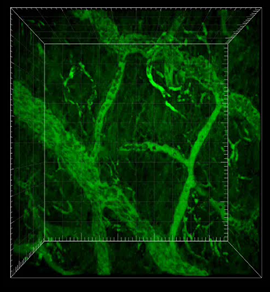When neutrophils fail to adhere
Babies born prematurely are at high risk to suffer a fatal bacterial infection. Such infections are typically kept in check by the immune system, especially by neutrophils, which are expert cells of bacterial clearance. Yet, in newborns and especially in preterm babies, neutrophils are not yet fully functional and are hence not competent to clear pathogens. In a new study led by Markus Sperandio, leader of TRR332 project C2, and collaboration partners across our neutrophil consortium, have revealed a mechanism explaining impaired neutrophil function.
Neutrophil adhesion to the endothelium is a key step for tissue entry and subsequent clearance of bacteria. In their study, Sperandio and team show that the ability of neutrophils isolated from umbilical cords to adhere is impaired and this defect was greater when isolating neutrophils from preterm infants. Using RNA sequencing they could show that the canonical NF-κB pro-inflammatory signaling was drastically reduced in fetal neutrophils and that A20, a negative regulator of inflammatory responses, was upregulated. In fact, the overexpression of A20 was identified as key factor of impaired adhesion of fetal neutrophils.
While the upregulation of A20 in fetal neutrophils may be a perfect adaptation during intrauterine fetal development, this drastically changes after premature birth where upregulated A20 (in collaboration with other anti-inflammatory factors) limit appropriate neutrophil responses to infection.
https://insight.jci.org/articles/view/155968

